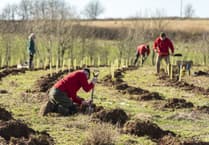Sewage spills increased while certain fish species continued to decline in the South West of England last year, according to a new report published by the Marine Biological Association (MBA).
The South-West Marine Ecosystems (The State of South-West Seas) Report for 2023 reflects the work of hundreds of volunteer citizen scientists and professionals working in the south west of the country.
It said that in 2023 there had been a higher percentage of sewage overflow spills due to it being the sixth wettest on record, although it added that all storm overflows had now been fitted with monitoring devices that allowed “complete coverage” and real-time data.
The report also said rates of seal deaths went up while brown crab and mackerel species continued to decline.
On the flip side, landings for other species such as crawfish and spurdog increased as a result of stock recovery.
Meanwhile, 2023 saw the most turtles recorded in the south-west area for nine years. The majority of the reports were of juvenile Loggerhead or Kemp’s Ridley turtles, most of which were ‘cold shocked’, meaning they were carried by ocean currents into areas which became too cold to sustain their active life style.
However, more than 50 per cent of hardshell turtles taken in alive for rehabilitation survived, the report noted.
Additionally, while climate change would continue to benefit some species, such as black seabream, red mullet and anchovy, it would negatively impact on other species, including lemon sole, Atlantic cod and haddock.




.jpeg?width=209&height=140&crop=209:145,smart&quality=75)
Comments
This article has no comments yet. Be the first to leave a comment.